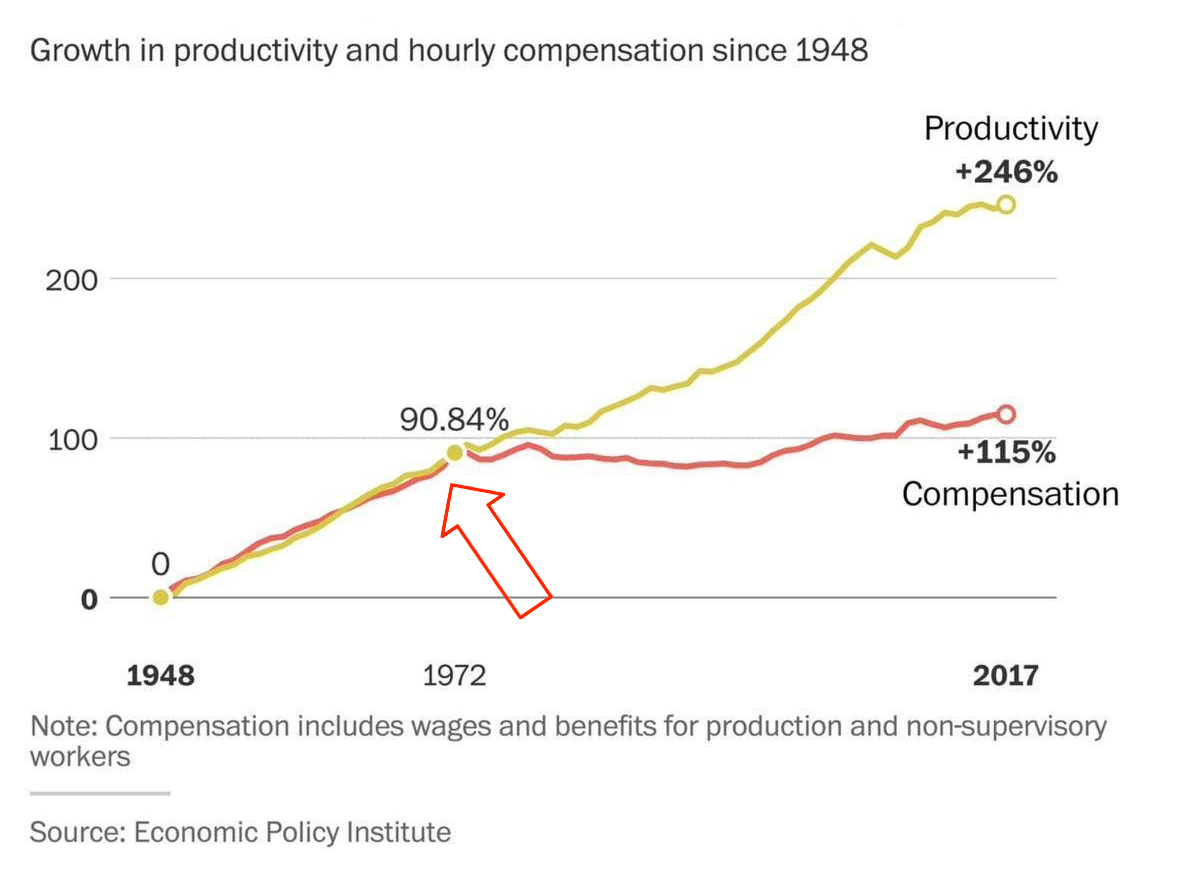Summary
Fox News host Julie Banderas warned that President-elect Donald Trump’s proposed tariffs—25% on products from Mexico and Canada and 10% on those from China—could significantly raise costs for Americans, as many businesses rely on foreign goods.
While some companies are shifting to U.S.-based suppliers or stockpiling goods ahead of the tariffs, Banderas noted that buying American often results in higher prices.
She highlighted that the financial burden would likely fall on consumers, questioning, “Who’s going to pay for that? We are.”
Economists have also warned of inflation risks.


Wages did in fact grow in proportion to the economy before Nixon.
Are we using the same pool of neoliberal economists who brought us here?
Inflation was still positive before, during, and after Nixon. It’s only been negative a handful of times for very short terms.
I’m not sure what Nixon has to do with anything.
I’m arguing that wages would increase in proportion to the economy, not that inflation would never be negative.
The Nixon Shock brought us inflation as we know it today. He lied that it would be temporary. The Keynesian rationale was adopted after the fact.
This argument is much weaker, but: most Republican economic policy sounds good at a surface level but actually hurts workers in practice. And I don’t think that’s by accident.
That gap growing has nothing to do with inflation as far as I’m aware. As you can see from the link I posted above, inflation has been consistently positive since 1933, yet the gap you’re talking about between compensation and productivity doesn’t show up until much later. Obviously it must be another factor.
Unions are how we get better compensation, not deflation. As the power of unions decreases people make less compared to the productivity they provide.
“Percentage of years positive” isn’t as informative as average inflation, which has been significantly higher since the Nixon Shock.
Deunionization absolutely is a major factor around the same time, no disagreement there. We need more savings to strike effectively. We deserve to both earn and keep the full value of our labor - without being forced to invest in the exploitation of others.